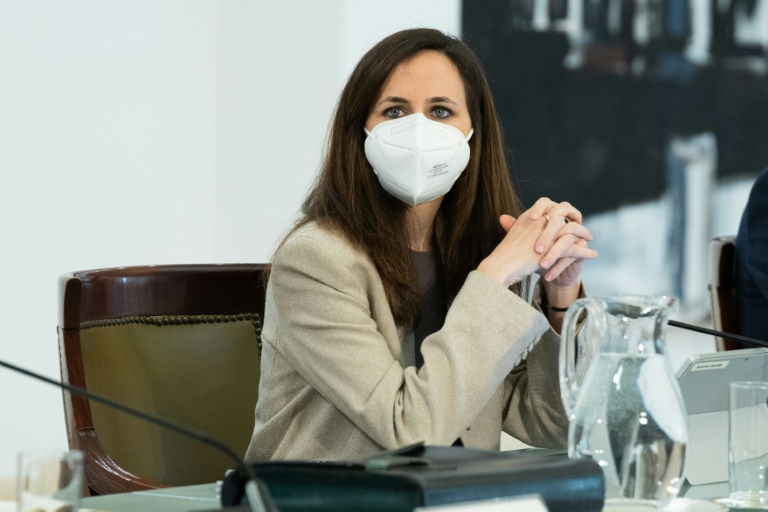The radical left-wing Podemos, junior partner in Spain’s ruling coalition, is expected to name Ione Belarra as its leader Sunday after the departure of Pablo Iglesias, who founded the faction in 2014.
Currently minister for social affairs, Belarra, 33, is the overwhelming favourite to take the helm of a party which emerged from the anti-austerity “Indignados” protest movement that occupied squares across Spain in 2011.
Since Sunday, party activists have been voting for their new secretary-general after Iglesias stepped down on May 4 following a stinging defeat at the hands of the right in Madrid’s regional elections.
Voting closes on Saturday with the results to be announced at a party assembly on Sunday.
Although there are three candidates, Belarra is running against two unknowns and is certain to win the vote.
One of Iglesias’ inner circle, she took over from him as social rights minister when he stood down to run as a candidate in the Madrid regional elections.
He also stepped down as one of Spain’s deputy prime ministers.
“She’s been chosen by Pablo Iglesias which gets her the support of party members. You could say he’s anointed his successor,” said Paloma Roman, a political science expert at Madrid’s Complutense University.
With her nomination, it will mean two women hold the highest positions in Podemos, the other being Labour Minister Yolanda Diaz, who took over from Iglesias as deputy premier and is expected to head the faction’s list in the next elections.
– A complex challenge –
Once known for his long ponytail which he chopped off after leaving politics, Iglesias has led the party since its inception seven years ago.
With a super-charged approach to leadership, he clashed frequently with other party members, prompting the departure of most of those who helped him found Podemos, including his deputy Inigo Errejon who later set up Mas Pais.
The list of candidates for the party’s executive is made up exclusively of Iglesias’ inner circle, among them Equality Minister Irene Montero, his partner and mother of their three children, and parliamentary spokesman Pablo Echenique.
To silence the sceptics, Belarra has pledged to usher in “a more harmonious era” with a different form of leadership that will take “a collective approach to decision-making”.
But sociologist and historian Emmanuel Rodríguez told AFP it would be “very complicated” for her to oversee any “restructuring” within Podemos given that the party “is completely biased towards the needs of its old guard”.
– Not what it was –
Podemos is the fourth largest party in parliament, holding 35 of its 350 seats, behind the Socialists, the right-wing Popular Party (PP) and the far-right Vox.
But the figure is far lower than the 69 seats it seized in 2015 when it first entered parliament, shattering the traditional Socialist-PP hegemony and promising to do away with austerity policies.
Along the way it has managed to lose some two million votes.
“Very little is left” of the original Podemos, says political scientist Jose Ignacio Torreblanca, who wrote a book about the party.
“First there was a big bang and then a cooling-off period,” he said, indicating it refused to be a party “with diverse ideological profiles” to be one that was “communist at its core” but backed by “allies that gave it a more modern sheen”.
In January 2020, Podemos entered government for the first time as junior partner in the left-wing coalition of Socialist Prime Minister Pedro Sanchez.
Since then it has been heavily involved in initiatives like last year’s minimum wage hike, or the labour reform recognising delivery drivers working for firms like Deliveroo or UberEats as staff.
Diaz played a central role in crafting such measures, also winning plaudits for negotiating with unions and employers to set up a furlough scheme that has been critical for avoiding mass layoffs during the pandemic.
But she herself has no interest in joining the party’s leadership given she is a member of the Communist Party.
However, after receiving Iglesias’ blessing, the party’s leadership will name her at the head of its list for the next general elections which should take place no later than January 2024.










